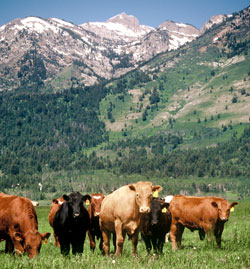One person can’t know everything, so successful managers learn to rely on other experts. Some go as far as developing a formal team of advisers.

Duke Phillips, Colorado rancher and winner of the 2003 Colorado Society for Range Management “Excellence in Range Management Award,” teams with experts in range monitoring, ornithology, mammalogy, entomology and botany to track ecosystem health on the 87,000-acre Chico Basin Ranch. Phillips uses the information to market his beef to urban, conservation-minded consumers along Colorado’s Front Range.
“This relationship is the bridge between the rural agricultural and urban-suburban community that Chico Basin Ranch believes must be created for many producers to remain economically viable,” Phillips says.
Teamwork pays off in other ways, too. Ranchers in Washington measure their “triple bottom line” of contributing to the environment, the ecosystem and society by using multi-species grazing to reduce costs and increase forage growth. But finding local solutions to using sheep, goats and cattle to graze areas takes time, creativity and persistence. A SARE-funded project helped individual ranchers create management support groups to share their experiences, both good and bad.
“A training workshop can create awareness of new information or new ways to do things, but unless this learning is applied soon, people won’t change,” says Don Nelson, extension beef specialist for Washington State University. “Forming groups of people who can work together after the training workshops helps to create responsibility and accountability. If I tell my fellow support group member that I’m going to do something, I feel some responsibility to get it done.”
